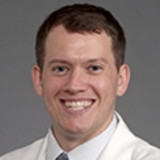In medicine, there’s a classic debate about pursuing academic jobs versus pursuing private practice: which category should a physician commit to? Admittedly, a lot of the debate focuses on the financial aspect and how that can affect the decision-making process. And of course, finances are an important consideration. But there are components of the academic versus private practice discussion that are infinitely more important than money.
Some of the top questions you’ll ask yourself as you’re choosing your career path are:
- What’s the health insurance plan like?
- Can I get vacation days, and do I make less if I take out the vacation, or do I still have a decent set salary?
- What is my time flexibility? (i.e., Am I seeing patients in a clinic four and a half days a week or can I do two days a week and then precept some of those days?)
Physicians fresh out of fellowship may also want to focus on finding good mentorship opportunities. You’ll learn a lot in fellowship, but you won't know it all. It’s often said that your first year as an attending can be the biggest learning curve (hello, impostor syndrome), and being around other more experienced doctors will be important for you to continue to ask questions and learn.
Academic Jobs for Doctors Have Their Appeal
You may be especially drawn to the idea of having the time flexibility to do extensive research, or of having the opportunity to teach.
One of the really nice things about academics is that you have the ability to buy back your time in different ways. Instead of seeing patients four and a half days a week, you could see patients for two and a half days, then have the potential to spend the other two days teaching in the medical school, teaching residents, precepting, working on research, or even traveling to conferences.
Many of us doctors have also accrued high amounts of student loan debt, especially some of the younger doctors. That’s because medical school tuition has skyrocketed over time, and doctors today pay significantly more for their education than in years past. If you're someone who has student loan debt, one of the things to consider about academic work is whether you’re going to try to get your student loan debt forgiven, because many qualifying academic institutions offer public service loan forgiveness.
Depending on your individual financial status, taking a position in academics could be well worth the time investment. Especially when you know going into it that potentially hundreds of thousands of your loan dollars could be forgiven. That’s a major mark in its favor when you’re weighing the benefits of academic jobs for doctors.
But a Private Practice Career Offers Benefits, Too
Unless you want to live, work, and play near a big academic center, in terms of location, a private practice career tends to provide more flexibility. Obviously, there are doctors' offices, hospitals, and medical facilities all over the country that don't exist in or near major cities if that’s not where you want to be.
We also like to tell our residents that academics is about depth, and private practice is about breadth. In a lot of specialist fields, private practice career opportunities can provide some of that breadth.
Private practice also tends to provide higher earning opportunities for physicians. It depends on how the practice operates, like how many days they’re open, or how many hours they’re available to treat patients on those days. Specifically in pediatrics, there can be a push to have at least a couple of days a week where the office is open later in order to accommodate patients. These potential scenarios can of course have an effect on your own schedule, where you might be working later than you would elsewhere.
What you choose to pursue really depends on your preferences, and how you feel you can work best in a given environment when weighed against all the factors that are most important to you.
A Tool To Decide Between Academics or Private Practice (Or Any Job)
When choosing a job, a common technique for making career decisions is to use a pros and cons list. I don’t recommend that method because it doesn’t tend to be very helpful. And the reason for that is because of our very human brain.
In an attempt to protect us, our human brain often skips over the aspects that make a job good and only focuses on what’s making us miserable. This is even more true when we’ve already been unhappy for a while. And being on this path is actually why most of my physician coaching clients end up consulting me in the first place. They’ve gotten burned out and changed jobs without figuring out the root cause of their work issues, so they just end up burned out and unhappy again in a year or two – even in a great job they thought would solve everything.
The tool I offer when someone is trying to decide between two different career paths is to get them to think about the worst-case scenario in each role.
If Job A means you can’t make partner, or you’d have to take on more debt, or it’s possible that you couldn’t afford to leave one day, and those are complete deal-breakers for you, that’s crucial information. It means you’ve automatically chosen Job B because you can’t tolerate the worst-case scenario of Job A.
But what if you find yourself in a situation where you love both job options? Well, if you get to the beautiful place of being able to tolerate the worst-case scenario of either job you could take, then you just get to choose one. Just make sure you think through the worst-case scenarios before saying “yes.”
Why did you choose academics or private practice? Share in the comments.
Dr. Jimmy Turner is a practicing anesthesiologist, physician entrepreneur, and coach for doctors. You can find him on Instagram or Twitter @tpp_md. You can also learn more by visiting his website.
Image by GoodStudio / Shutterstock







